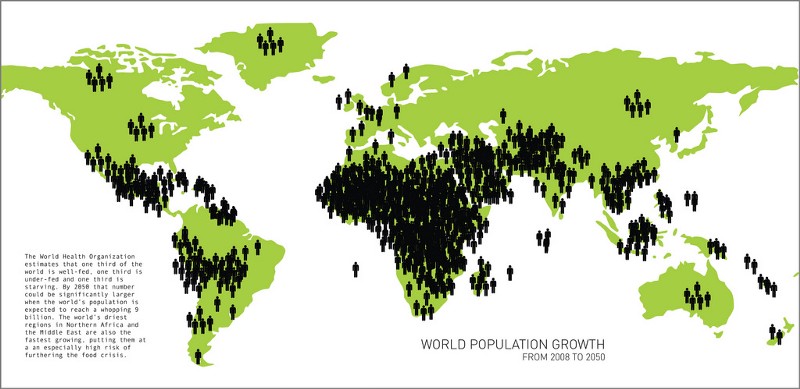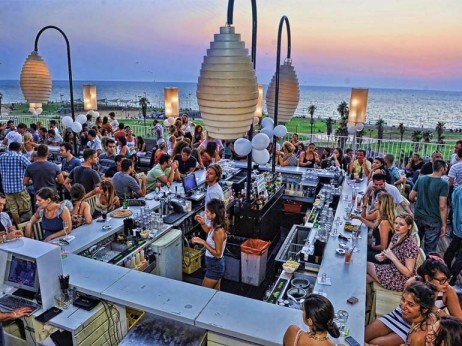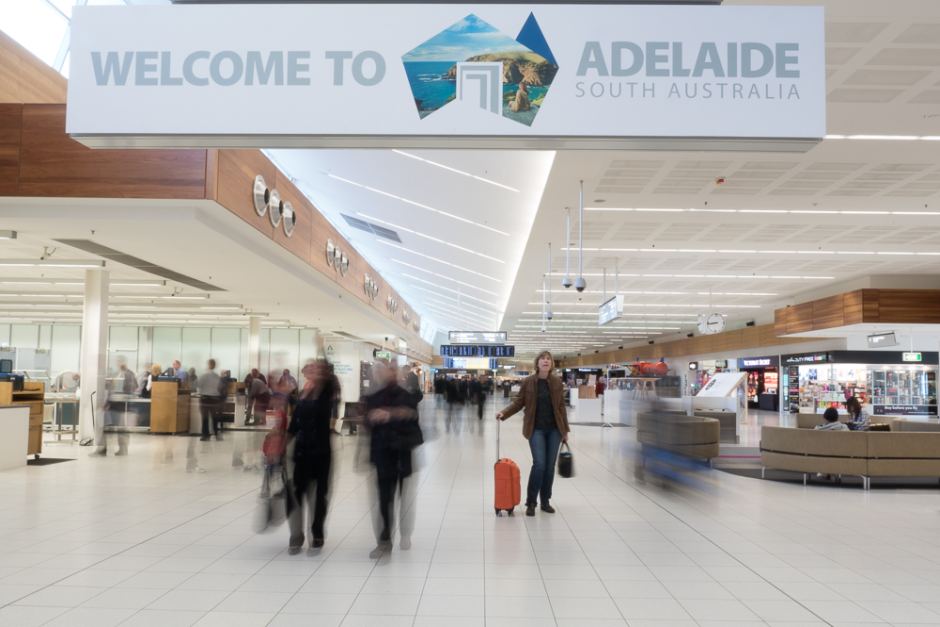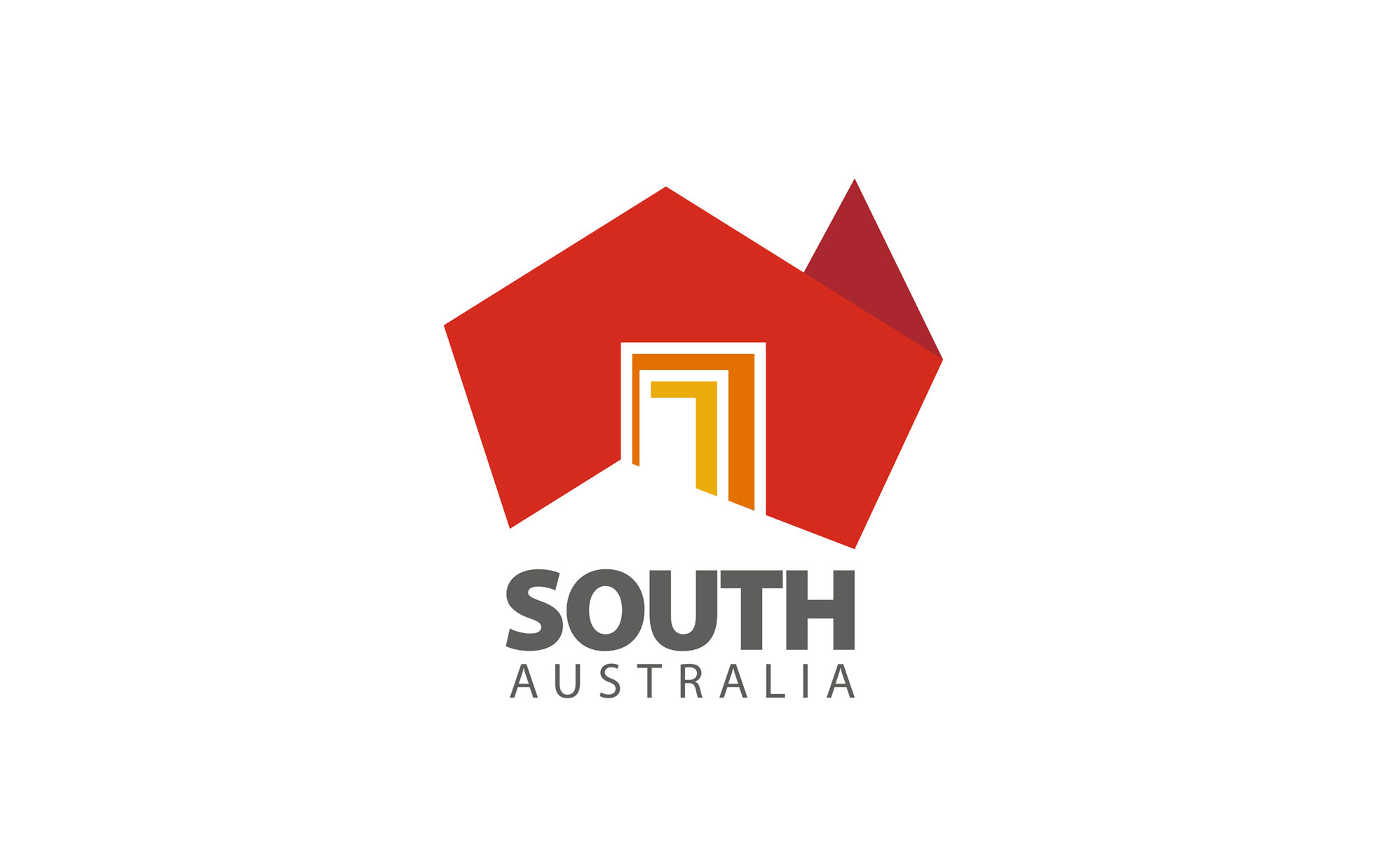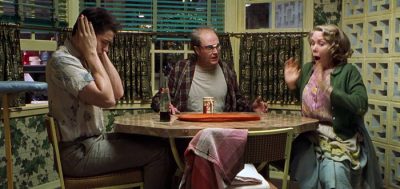You are NOT the world, just part of it
It is easy to get our self-importance out of whack. We are each only 0.00000001% of the world’s 7.4 Billion people. 97% of the world’s population do not live in Australia. Our own significance is likely self-inflated. The future of small cities and towns like Adelaide (where I now live) and Swan Hill (where I was born) will be dictated by the ability to accept that they are not the world, just part of it.
(shorter version via here or read on)
I was born in Swan Hill on the Murray River in Victoria Australia, in the year man first landed on the moon, at the time the population was around 7,000. My family moved to Melbourne about two years later, population several million. We then traveled to places big and small, arriving in Adelaide, South Australia, mid high school. I exited Adelaide post university to work in Melbourne. As many young people leaving cities and towns post study, no matter where they grow up, I planned to never return.
Way back in the day, in the mid-1990’s, cities largely worked independently. While the research agency I worked with in Melbourne (Frank Small & Associates, then absorbed into TNS Sofres) dealt with Sydney and Asia, and I spent time at the Paris HQ, each city was isolated geographically, psychologically and most communications was via the telephone, face-to-face or fax, as email was only just emerging.
There was a level of nervousness in relation to the perceived security gaps from email, with risks associated with emailing reports and other documents outweighing any convenience. This was how it had always been done, so why did it need to be done differently and face unnecessary risks? Big files were transferred to clients and other offices from the data room’s FTP modem. It was a small, pokey room I felt privileged to have clearance to use. Mobile phones were just arriving.
Establishing a global network was on reflection likely more challenging than it would be today. Market research pioneers Frank Small & Associates launched in Australia in 1964 and launched an Asia network (which significantly helped TNS’s global expansion). Advertising icons Y&R launched in 1923 and Ogilvy in 1948 (now both part of WPP group) and established global networks well before the Internet. Large global accounting and consulting groups KPMG (pre 1818), Deloitte (1945), pwc (1954) and EY (1849) all created global networks well before any dotcom boom (or even telephone boom), when communications was likely far more complex, slow and geographies isolated and disconnected.
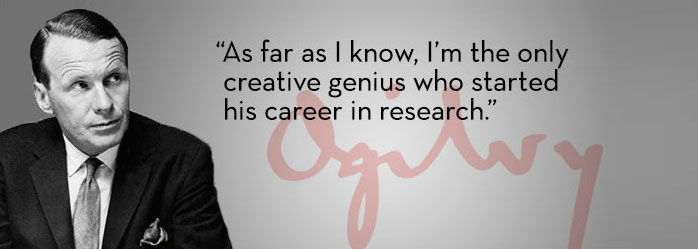
It must have been much harder back then, but global networks were built. Never before has it been easier to conquer the world from anywhere.
Yet, many business leaders still think in very much of a closed geographical way. They struggle to generate the revenue and growth they need to survive or would prefer and blame the local economy and the government. The times have moved and while back in the day they could have ran a highly profitable and growing business just thinking locally, now they are being attacked with competitors coming from all directions — online, freelancers and otherwise.
Often they are oblivious that the world has changed, or are just lazy. Many businesses may have survived from pure dumb luck, being in the right place at the right time or even being protected by the government and others. Even the smallest gust can blow them down like a house of cards.
They worked hard and long, but do not understand concepts like product-market fit — the degree to which a product satisfies a strong market demand. They are of the ilk where you just give it a crack, without any real measurement and definitely no robust research of market demand or strategic priorities — pricing, distribution, promotion et cetera. As long as they keep rolling out the same strategy to the same target customers, all will be just fine, even with the warning alarms ringing.
As their market starts to shrink with competitors from all directions, or even just changing consumer spending and behavioural patterns, the pressure and stress starts to increase. The risk of changing seems too high, as they may lose what they have. They ignore the opportunities, but deflect to those who are responsible for their business’ failing. They wait for someone to rescue them as that’s what they have expected in the past.
They forget that they do not need to limit their target customers to locally, but have infinite (almost) new markets in easier reach than ever. There are 7.4 billion consumers globally. For businesses targeting businesses, there are more than 43,000 companies listed on stock exchanges worldwide.
Even the most niche artisan business can find a sustainable market. There are online marketplaces and standalone stores easy to find. Corner cafes and stores are often turning global, producing their own side hustles, critical in sustaining and growing their businesses. Yet, this can be foreign for many struggling businesses, punch drunk with the constant challenges of profitability and not looking outwards to growth opportunities.
Small cities can obsess on their size, rather than embracing the lifestyle and opportunities within and around, they only see the problems, the deficiencies and what they wish. Successful cities and towns do all they can to make the local community prosper. They have a hunger for success and an eye on the world.
Tel Aviv in Israel, with a population of around 4 million, is one of few high performing entrepreneurial hubs outside of the US, and has been noted as second only to Silicon Valley for producing successful start up companies listed on the NASDAQ and elsewhere. They have built a well established start-up eco-system of investors, incubators and hubs.
There is an entrenched hunger for success in Tel Aviv, and drive for a concept called ‘Tikkun Olam’ (literally, “repair of the world” – responsibility not only for their own moral, spiritual, and material welfare, but also for the welfare of society at large). It is a city historically poor in natural resources, faced by fierce conflicts and not long ago mostly land and desert swamps, which have since been transformed into productive and fertile farming land, and a global centre for research into irrigation and water technology. The volatile region has created world leading defense and non-defense research and development into defense, healthcare, telecommunications, security, transportation, aviation and more.
How people work is also continuously changing. It is becoming increasingly more common for people to work remotely, and freelancers to be available for any business anywhere, quickly and seamlessly. Automattic, the company behind WordPress et cetera, worth $1 Billion plus US is proud of their team of 716 spread across the world in 61 countries, and speaking 61 languages.
“Everyone works from the location they choose. We’re spread out all over the world in more than 50 countries. Because of the geographic variance, we’re active 24/7. We care about the work you produce, not just the hours you put in.” https://automattic.com/work-with-us/
I can recall interviewing a key team leader at a large global fast-moving consumer goods company a few years ago as part of a larger study. As he softened into the discussion, he opened up to the challenges, stresses and realities of his team shrinking locally (from more than 30) to a small local team and global network. This created complexities and lessons, but the world was even then becoming about hub and spoke teams of central management and globally dispersed team members. This will inevitably become more common and even the norm for businesses thinking globally.
When I first returned to work in Adelaide I could see the opportunity. Such a liveable city, with the potential to be a hub to the world. South Australia now has a population of 1.7 million. Three quarters, 1.3 million, live in the capital city of Adelaide. South Australia is 153% the size of France, 3% of the population, and produces 80% of Australia’s premium wine. Adelaide is also a place of great beer, food, arts, sport, universities and creativity nestled amongst pristine beaches and beautiful hills.
Yet, to call a spade a spade, the small population size and geographic isolation is challenging. Not too dissimilar to Tel Aviv, Adelaide and South Australia, is faced with unique complexities, and there are opportunities to increasingly adopt an ethos of thinking global and Tikkun Olam.
Similarly, there is opportunity for smaller populations such as Adelaide to be hungry for success and to seek opportunities and solve unmet world problems. More direct international flights are coming into and out of South Australia, attracting growing eager tourist numbers, and escalating trade missions and exports to China, the US and elsewhere. Adelaide is becoming a global hub.
There are many businesses conquering Australia and the world from South Australia. In recent years I have worked with many successful local businesses partnering with Square Holes. A small selection include …
“Founded in 1959 in Adelaide, South Australia, we’ve since expanded to have a truly global footprint, with offices in the US, Canada, Ireland, UAE, South Africa and China. Our customers include some of the world’s largest and best aid and humanitarian organisations, mining companies, security and military.”
“The Detmold Group employs around 2500 people worldwide in offices and factories strategically located to support our customer’s operations and future growth. We have world class manufacturing facilities in Australia, Indonesia, China, South Africa, Vietnam and the Philippines, with a global network that services the Asia Pacific region, Europe, the Middle East, Africa and the Americas.”
“At Haigh’s we’re very proud to be the oldest family-owned chocolate maker in Australia. We now employ over 550 people throughout our factory, administration and 17 retail stores located across Adelaide, Melbourne, Sydney, Canberra and online.”
“Elders’ vision is to be Australia’s leading agribusiness, creating value for all stakeholders in our Australian and international markets. Australian primary producers work closely with Elders to access products, marketing services, and specialist technical advice across retail, agency and financial product categories. Our feed and processing business operates a top-tier beef cattle feedlot in New South Wales, an integrated beef supply chain in Indonesia and a premium food distribution model in China.”
In South Australia, some of our key sectors such as wine, agribusiness and tech innovation have survived and prospered through export. Exporting is challenging, but necessary, particularly in small markets.
Similarly, Square Holes is working well beyond South Australia, with a quickly growing client base in Melbourne, other markets and overseas. Over 2017–18 we have worked across Australia (from Rockhampton to Narrogin), and across the world from New Zealand to Canada, Thailand, Singapore, Africa, Europe and the US. Even our work for universities such as projects to support the development of a Masters of Agribusiness at Adelaide University and exploring the MBA market for AIB are seeking global audiences.
Recently we have been working with brands as diverse as TJM based in Brisbane exploring their Australian retail network, to tech company Maths Pathways out of Melbourne; to a Chinese company exploring Australia for a quick-service restaurant (QSR) franchise network. These all have national / global markets.
Square Holes also has partnered with the State Theatre Company of South Australia for a decade, and it has been fascinating to watch their success thinking locally and offering a quality product, and exporting well beyond.
In 2017 State Theatre staged 375 performances of 12 productions in 28 cities, produced 5 major tours. During 2018, State Theatre will stage 295 performances in 19 cities. Such touring is only relatively new for the State Theatre, yet in recent years, exporting and touring quality productions has become the cornerstone of the Company.
“The Company has enjoyed international debuts in London with Things I Know To Be True and on 42nd Street New York with Pinocchio our co-production with Windmill. It’s no wonder our esteemed colleague’s interstate speak about State Theatre Company with admiration and awe and use the words “bold and ambitious” to describe State Theatre Company and our program.” Jodi Glass Executive Director/Producer, State Theatre Company South Australia
Such touring is not uncommon for arts companies, it is often a matter of survival. Since July 2008 I have been on the Board of Patch Theatre Company.
“We have performed 105 new works to more than 1.8 million children and their families since our inception in 1972 and enjoy great international and national acclaim for our work. We tour extensively across Australia and present regular seasons at the nation’s major performing arts centres and children’s festivals. Patch Theatre has presented more than 30 international seasons at arts centres and festivals across the US, Canada, Singapore, Korea, Japan, Hong Kong and New Zealand.” Patch Theatre Company
In the recent week or so there has been some controversy around the awarding of the lead agency advertising account for South Australian Tourism to a non-local agency TBWA. I will not rehash this, but more information can be found here, here and here. To highlight an insightful quote from a blog post by Jamie Scott the Managing Director of Showpony Advertising (who won a spot on the SA Tourism panel) about the need for thinking beyond local self-protection …
“That’s the real challenge to South Australian business. Broaden your horizons and don’t protect your borders like some small-town Trump.” Read Jamie’s full article here
Over the years I have directed research studies for many professional service firms including local and global legal and accounting firms as to how they best prosper in small markets such as Adelaide. Typically the feedback is the need to maintain and build high levels of competency and expertise in required areas. This largely comes from a solid volume of work at a high standard to maintain and grow expertise levels, develop and retain quality staff and offer a global perspective.
A further quote in relation to the above mentioned ‘controvery’ is from Tim Burrows’ weekly email for media and marketing commentator Mumbrella …
“The wider issue is the question of whether it’s possible in Australia to be a world class agency outside of Sydney or Melbourne. Or indeed, to work in one.” Tim Burrows
Adelaide has many world class agencies, including those successfully gaining a spot on the SA Tourism panel (Showpony, Fuller and Blacksheep), KWP! the agency unsuccessful in winning the lead agency role after two decades of stellar creative thinking and execution, as well as many more creative agencies and other professional service firms.
Small markets can translate to smaller budgets, and lower volume of work for professional service firms. This can make it challenging to grow to a global or even national scale (if they had any desire to do so) relying solely on local workload and opportunities. It can also be hard to scale a business to a profitability and market value that allows the owner(s) to exit at a worthwhile financial return. Fancy working in your business until 70+ as you haven’t been able to find a viable new owner(s) or successor(s)?
The best way to prosper in small local markets is likely to broader the geographic target market, and offering a valued specialist expertise and/or offering to a larger potential customer base. Professional service firms think locally for a variety of reasons from the ability to manage client relationships and expectations to risks associated with funding growth.
Surely the interconnections of the world make it far easier than it was back in the 1990s and before to develop a geographic network. Other than the potentially volatile profitability of being based in a small market, and the need for a unique and valued offering, which can be difficult to build with a lower volume of work, there is likely little reason why it shouldn’t be easier than back in the day. Building successful businesses in small markets likely just requires the right strategic thinking executed well.
This all seems quite logical I am sure, and many businesses try and fail to export. It is not easy and many businesses know they should be expanding their geographic market reach.
The reality is that in some markets such as South Australia exports are not increasing notably, yet are so important to survival and future prosperity. Only 4% of Australia’s exports are from South Australia. Exports increased in South Australia 2% from 2013–2017, compared with 6% in Queensland and Victoria and 4% in New South Wales (More).
The future of small cities and towns like Adelaide and Swan Hill will likely be dictated by the ability to accept that they are not the world, just part of it. There are benefits to living away from big cities. Including the lifestyle and serenity. Yet, rather than being stuck in old ways and blaming others for failing to find product market fit, economic and social prosperity will likely come from being hungry for success and expanding thinking to global markets.
This requires a rethinking of business models, including communications, target audiences and how to engage teams and customers locally and wider. It requires robust and expert market research, analysis and planning. The biggest shift required is psychological and that businesses thinking global should be set as the norm not the atypical and unusual. This is critical for survival, and maintaining a sense of our global insignificance and huge opportunities.
Do you want more?
If you are interested in the above, I also wrote these on similar topics …
Conquering the world from anywhere has NEVER been easier (2017)
The (off-line) experience economy, and how to build it (2017)
Introspection kills innovation (2016)
Get off the couch Adelaide (2016)
Adelaide – food, wine, sun, fun, creativity and grumpy middle aged leaders (2015)
ADELAIDE DEVELOPED: J’adore Adelaide (2012)
Also … I have been a proud board member of the Patch Theatre Company Board since July 2008. We have been set a critical fund raising target of $25,000 by end of THE WEEK!!!, as part of the Creative Partnerships Plus1 initiative. If (if) we meet the target, and we are well on the way, Australian Government will match dollar for dollar every donation we receive. If we don’t achieve the $25,000 no match. 🙁 As a Board member, I have been set a critical target, and I would REALLY appreciate any support.
Please click here for more / to donate
There’s never been a better time to donate and support theatre for young children. Patch Theatre Company has a diverse repertoire of acclaimed, tour-ready productions for 4-8 year olds and their families. The company is based in Adelaide, South Australia and has presented over 100 new productions to more than 1.6 million children and their families since it began in 1972.
Over the last decade, Patch Theatre Company has presented six of its repertoire productions, in more than 20 international seasons, to children’s festivals and venues in the US, Canada, Singapore, Korea, Japan and New Zealand. Patch also has delivered 7 consecutive national Playing Australia tours and has presented 8 seasons at the Sydney Opera House and the 9 seasons Arts Centre, Victoria.
Patch Theatre’s most recent production of ‘Can You Hear Colour?’ the new opera for children, launched at the Adelaide Festival was very successful and received RAVE reviews.
” Can You Hear Colour? is a delightful invitation to open our hearts fully to life’s delicious possibilities and take the time to view things from the perspective of another. See it to remind yourself of the joy we can experience when we awaken our senses to the full spectrum of what the world has to offer.” More via InDaily here
Companies such as Patch Theatre punch well above their weight in creativity with a small team and budget, and donations are critical. The amazing shows such as Can You Hear Colour are unconventional and empower our future innovators. Please GIVE $1,000, $500, $100, $50 to help fund critical stuff for little kiddies – the future. Do it! Pretty please.
Please click here for more / to donate
🙂
Thank you. May the 4th be with you!
Square Holes is a proud member of Brand South Australia.
